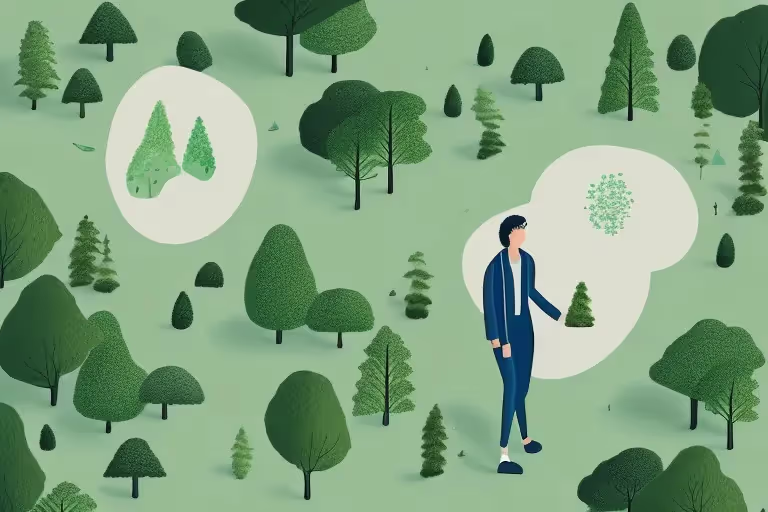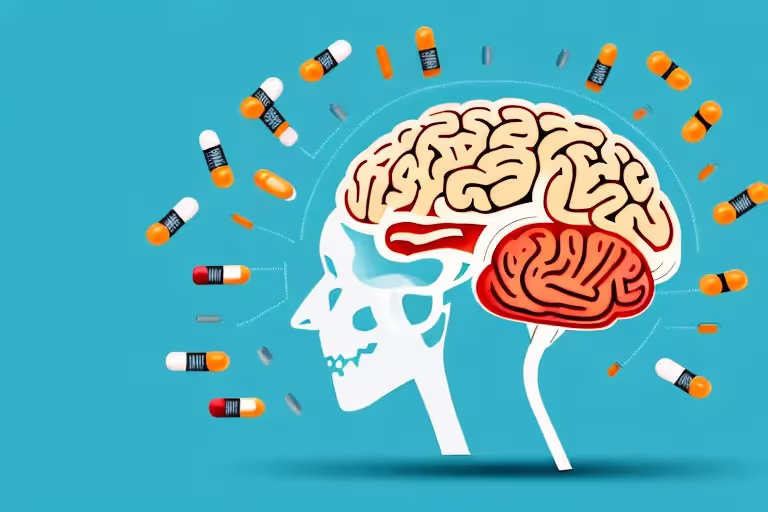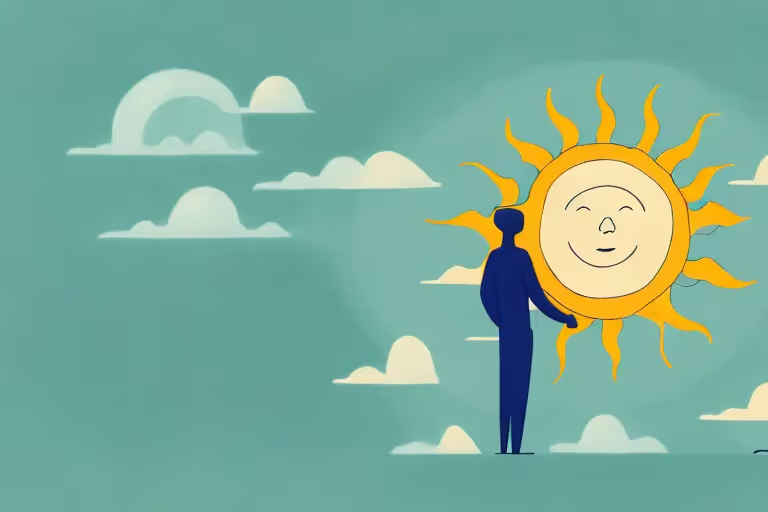The world we live in is fast-paced, demanding, and often stressful. However, there is a practice that seeks tranquility amidst the chaos, inviting us to focus on the present moment with acceptance and non-judgment. That practice is mindfulness meditation. This guide aims to shed light on mindfulness meditation, its origins, benefits, techniques, challenges, and ways to incorporate it into everyday life.
Understanding the Concept of Mindfulness
Mindfulness is the art of becoming deeply aware of the here and now, with a gentle, non-judgmental attitude. It's about embracing the present moment with all its complexities, no matter how pleasant or unpleasant. Rather than getting caught up in thoughts of the past or the future, mindfulness encourages us to exist solely in the current moment.
Contrary to popular belief, mindfulness is not something to achieve or accomplish, but rather, it's a state of being we can foster and nurture. It's a continuous journey that deepens our understanding of our thoughts, emotions, and bodily sensations, and how they interact.
The Origin and History of Mindfulness
Mindfulness has its roots in Buddhism, specifically in vipassana meditation – one of the oldest forms of meditation that focuses on the direct and immediate nature of reality. Vipassana meditation originated over 2,500 years ago in ancient India and was taught by Gautama Buddha himself. The practice of mindfulness was passed down through generations of Buddhist monks, who dedicated their lives to cultivating awareness and compassion.
However, it wasn't until the late 20th century that mindfulness became popularized in the West, thanks to the efforts of Dr. Jon Kabat-Zinn. Dr. Kabat-Zinn, a renowned scientist and meditation teacher, created a mindfulness-based stress reduction (MBSR) program at the University of Massachusetts Medical School. This program introduced mindfulness to a wider audience and highlighted its potential benefits for managing stress, anxiety, and chronic pain.
Today, the practice has transcended its spiritual origins and is widely embraced in various forms such as mindfulness-based cognitive therapy (MBCT), dialectical behavior therapy (DBT), and mindful self-compassion (MSC), demonstrating its remarkable versatility.
Aura has the world’s largest and best collection of Meditations and hundreds of Coaches to choose from.
Try it Free!
The Basic Principles of Mindfulness
Mindfulness is based on a few fundamental principles. Firstly, it's about observing your experiences just as they are, without trying to change, analyze, or interpret them. By cultivating a non-reactive stance, we can develop a deeper understanding of our thoughts, emotions, and sensations.
Secondly, mindfulness focuses on being aware in the present moment instead of ruminating over the past or worrying about the future. This practice allows us to fully engage with our current experience, whether it's savoring the taste of a delicious meal, feeling the warmth of the sun on our skin, or listening attentively to a loved one.
Thirdly, mindfulness involves an attitude of acceptance and non-judgment. This means accepting experiences as they occur, without attaching labels of 'good' or 'bad'. By letting go of judgment, we create space for compassion and understanding, both towards ourselves and others.
Lastly, mindfulness emphasizes patience, kindness towards oneself, and a sense of openness and curiosity towards all experiences. Rather than rushing through life, mindfulness invites us to slow down, be present, and cultivate a sense of wonder and curiosity about the world around us.
The Science Behind Mindfulness Meditation
The practice of mindfulness meditation has captured the interest of the scientific community in recent years, with numerous studies pinpointing its benefits for both mental and physical health.
Mindfulness meditation involves focusing one's attention on the present moment, while calmly acknowledging and accepting one's feelings, thoughts, and bodily sensations. This practice has been found to have a wide range of psychological and physical benefits.
The Psychological Benefits of Mindfulness Meditation
Research has shown that mindfulness can significantly reduce stress levels and improve mood. When individuals engage in mindfulness meditation, they are able to cultivate a sense of calm and relaxation, which can help alleviate symptoms of anxiety and depression.
Furthermore, mindfulness enhances cognitive functions such as working memory, attention span, and focus. By training the mind to be fully present, individuals are able to better concentrate on tasks at hand and avoid distractions. This can lead to increased productivity and improved overall cognitive performance.
In addition, mindfulness helps individuals to better regulate their emotions. By practicing non-judgmental awareness of their feelings, individuals become more skilled at managing and responding to their emotions in a healthy and constructive manner. This can have a positive impact on interpersonal relationships, as individuals are better able to communicate their needs and empathize with others.
Mindfulness meditation also boosts feelings of self-compassion and empathy. Through the practice of mindfulness, individuals develop a greater sense of kindness and compassion towards themselves and others. This can lead to healthier relationships, increased life satisfaction, and an overall improvement in mental well-being.
The Physical Health Benefits of Mindfulness Meditation
While the psychological benefits of mindfulness meditation are well-documented, the practice also offers numerous advantages for physical health.
Studies have found that mindfulness meditation can help lower blood pressure. By promoting relaxation and reducing stress levels, mindfulness can have a positive impact on cardiovascular health. Additionally, mindfulness has been linked to improved sleep quality, as individuals who practice mindfulness are better able to quiet their minds and relax their bodies before bedtime.
Furthermore, mindfulness meditation has been found to strengthen the immune response. Research suggests that the practice of mindfulness can enhance the activity of natural killer cells, which play a crucial role in fighting off infections and diseases.
Another physical health benefit of mindfulness meditation is its effectiveness in chronic pain management. By promoting physical relaxation and changing the perception of pain, mindfulness can help individuals better cope with chronic pain conditions. Additionally, improved body awareness through mindfulness can lead to healthier eating habits and weight management, as individuals become more attuned to their body's hunger and fullness cues.
In conclusion, the science behind mindfulness meditation reveals a multitude of benefits for both mental and physical health. By incorporating mindfulness into daily life, individuals can experience reduced stress levels, improved mood, enhanced cognitive functions, and a range of physical health benefits. The practice of mindfulness meditation offers a holistic approach to well-being, promoting a greater sense of calm, self-compassion, and overall life satisfaction.
How to Practice Mindfulness Meditation
Now that you understand what mindfulness is and its benefits, you might wonder, "How can I practice it?" Below, you'll find some insights and techniques to get started on your mindfulness journey.
Preparing for Mindfulness Meditation
Preparation for mindfulness meditation begins with finding a quiet and comfortable space where you can sit without being disturbed. You can sit on a chair, cushion, or even the floor—just make sure your posture is upright but not rigid. Remember, the goal here is to be comfortable, alert, and relaxed.
The next step is deciding the length of your meditation. As a beginner, you might want to start with just a few minutes and gradually extend the duration as you get used to the practice.
Basic Techniques in Mindfulness Meditation
Once you're settled in your meditation spot, close your eyes and start by taking deep, slow breaths. Pay attention to the sensation of your breath going in and out. When your mind starts to wander, gently bring it back to your breath without any judgment. This is the fundamental technique in mindfulness meditation – breath focus.
But mindfulness isn't just about focusing on the breath. It is about paying full attention to any experience that arises. This could be a bodily sensation, a sound, an emotion, or even a thought. The key is to observe these experiences with openness and curiosity, without judgment.
Advanced Techniques in Mindfulness Meditation
As you become more comfortable with mindfulness meditation, you may want to explore more advanced techniques. These could involve mindfulness walks, where you pay close attention to the sensation of walking, or mindful eating, where you focus wholly on the experience of eating and tasting food.
In addition, there are mindfulness exercises devoted to exploring specific mental states or emotions – like loving-kindness meditations, which promote feelings of compassion and love for oneself and others.
Common Challenges in Mindfulness Meditation and How to Overcome Them
Though mindfulness meditation is beneficial, it's not always easy. Like any other skill, it takes practice, patience, and perseverance. Here are common challenges you may encounter and ways to overcome them.
Dealing with Distractions
Distractions are a part of the human experience. Whether it's your own thoughts, noises from the environment, or physical discomforts, getting sidetracked during meditation is inevitable. When distractions arise, the key is to acknowledge their existence without judgment, then gently bring your focus back to the meditation.
Remember, mindfulness is not about achieving a state of empty mind, but rather about observing your experiences with focus and acceptance – including distractions.
Overcoming Meditation Anxiety
For some, the idea of being alone with their thoughts can be disturbing and can lead to meditation anxiety. If this is the case for you, remember to take things slow. Start with short meditation sessions and gradually extend them as you become more comfortable. Remember, mindfulness is a journey, not a destination. Be kind to yourself during this process.
Incorporating Mindfulness into Everyday Life
While dedicated meditation sessions are important, mindfulness is really about being fully present at every moment of our lives. Here are a few ways to incorporate mindfulness into your daily routine.
Mindfulness Exercises for Daily Practice
Try incorporating mindfulness into daily activities. This can include mindful eating, mindful walking, or even mindful cleaning. The aim is to bring full attention to the task at hand and to observe all the sensations, thoughts, and emotions that arise during these activities.
Another great practice is to take a few moments each day to just sit in silence and observe your breath. This can be a great way to reset, recharge, and re-center yourself amidst the hustle and bustle of daily life.
Mindfulness and Relationships
Mindfulness can also significantly improve the quality of our relationships. By being mindful, we can become more present and attentive to our interactions with others. This can enhance understanding, empathy, and emotional connection. It's about truly listening to the other person, not just hearing them.
Furthermore, mindfulness can help us to respond to conflict in a more thoughtful and less reactive way. Instead of letting our emotions run wild, we can take a step back, observe our feelings with non-judgment, and respond in a calm and balanced manner.
Whether it's during a simple conversation or a heated argument, being mindful can make a world of difference in our relationships.
In conclusion, mindfulness meditation is an effective way to reduce stress, improve mental and physical health, and enhance overall quality of life. It's a skill that can be developed with practice and patience. Start incorporating mindfulness into your daily routine and witness the powerful difference it makes.
To help get you started and keep you on track, consider using the Aura Health app. It offers personalized mindfulness meditation exercises and also tracks your progress, making it an excellent companion on your mindfulness journey.
Aura is Your All In One App for Meditation, Mindfulness Wellbeing
Find peace every day with one app for your whole well-being. There is no one-size-fits-all solution to mental well-being. Aura is the first all-in-one wellness app that learns how to best help you. Discover an endless library of expert-created tracks for your well-being, all taught by the world’s best coaches, therapists, and storytellers. With Aura's personalized recommendations, you can find peace every morning, day and night.



.webp)






.avif)

%20(1).avif)


.avif)
.avif)
.webp)


.avif)


















































































































.avif)

















.svg)









